Table of Contents
Who doesn't love a bowl of creamy, cheesy mac and cheese? It's the ultimate comfort food, perfect for a cozy night in or a quick and satisfying meal. But forget the boxed stuff – we're diving into the world of homemade goodness with an easy classic mac and cheese recipe that will blow your mind. This isn't just any mac and cheese; it's a velvety, rich, and utterly delicious experience that's surprisingly simple to create.
The Secret to an Ultra Creamy Easy Classic Mac and Cheese Recipe
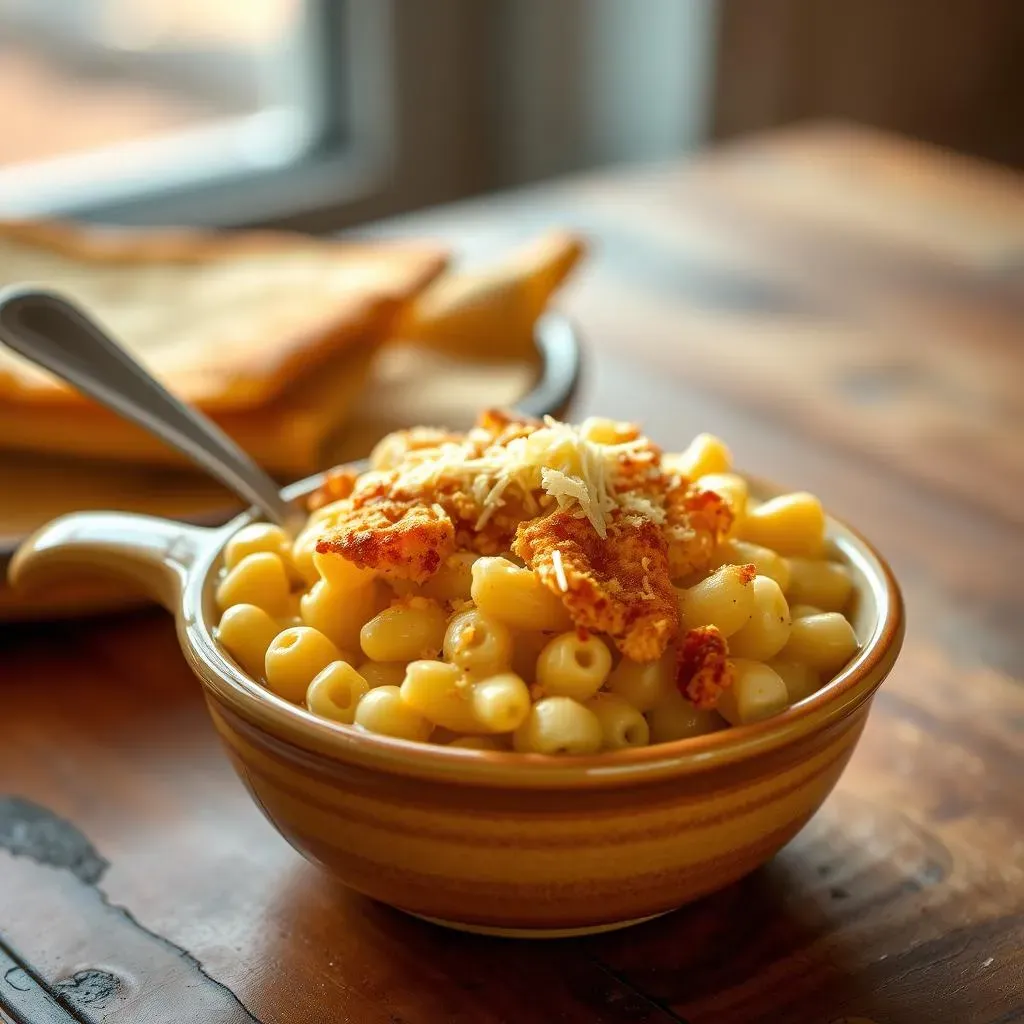
The Secret to an Ultra Creamy Easy Classic Mac and Cheese Recipe
Quality Cheese is Key
Let's get real: the cheese is the star of the show. Using pre-shredded cheese might seem like a time-saver, but trust me, it's a one-way ticket to grainy town. Those bags often contain cellulose, which prevents the cheese from melting smoothly. Instead, opt for a block of high-quality, aged cheddar. Freshly grating it yourself makes a world of difference. The flavor is more intense, and it melts like a dream.
Also, consider mixing in other cheeses for a more complex flavor profile. A little Gruyère or Parmesan can add a nutty, savory depth that elevates your mac and cheese from good to gourmet. Experiment and find your perfect blend!
The Roux: Your Foundation for Success
The roux is the base of your cheese sauce, a simple combination of butter and flour that thickens the milk. It's crucial to get this step right to avoid a lumpy sauce. Melt the butter over medium heat, then whisk in the flour until it forms a smooth paste. Cook it for a minute or two to cook out the raw flour taste. This step is important! Don't rush it.
Once your roux is ready, slowly whisk in the milk, a little at a time, until it's fully incorporated and smooth. Continue stirring constantly until the sauce thickens to the consistency of gravy. This might take a few minutes, so be patient. Low and slow is the name of the game.
Low and Slow Wins the Race
High heat is the enemy of creamy mac and cheese. When the cheese gets too hot, the proteins can seize up, resulting in a grainy, oily mess. Keep the heat low and stir constantly while the cheese is melting. This ensures that the cheese melts evenly and smoothly into the sauce.
Also, don't overcook the macaroni! Cook it al dente, as it will continue to cook in the cheese sauce. Overcooked macaroni can become mushy, which nobody wants. Drain it well and add it to the cheese sauce immediately. Give it a good stir to coat all the noodles in cheesy goodness, and you're ready to serve.
Key to Creamy Mac | Why it Works |
|---|---|
Freshly Grated Cheese | Avoids cellulose, melts smoother |
Proper Roux | Thickens sauce, prevents lumps |
Low Heat | Prevents cheese from seizing |
Essential Ingredients for the Best Easy Classic Mac and Cheese
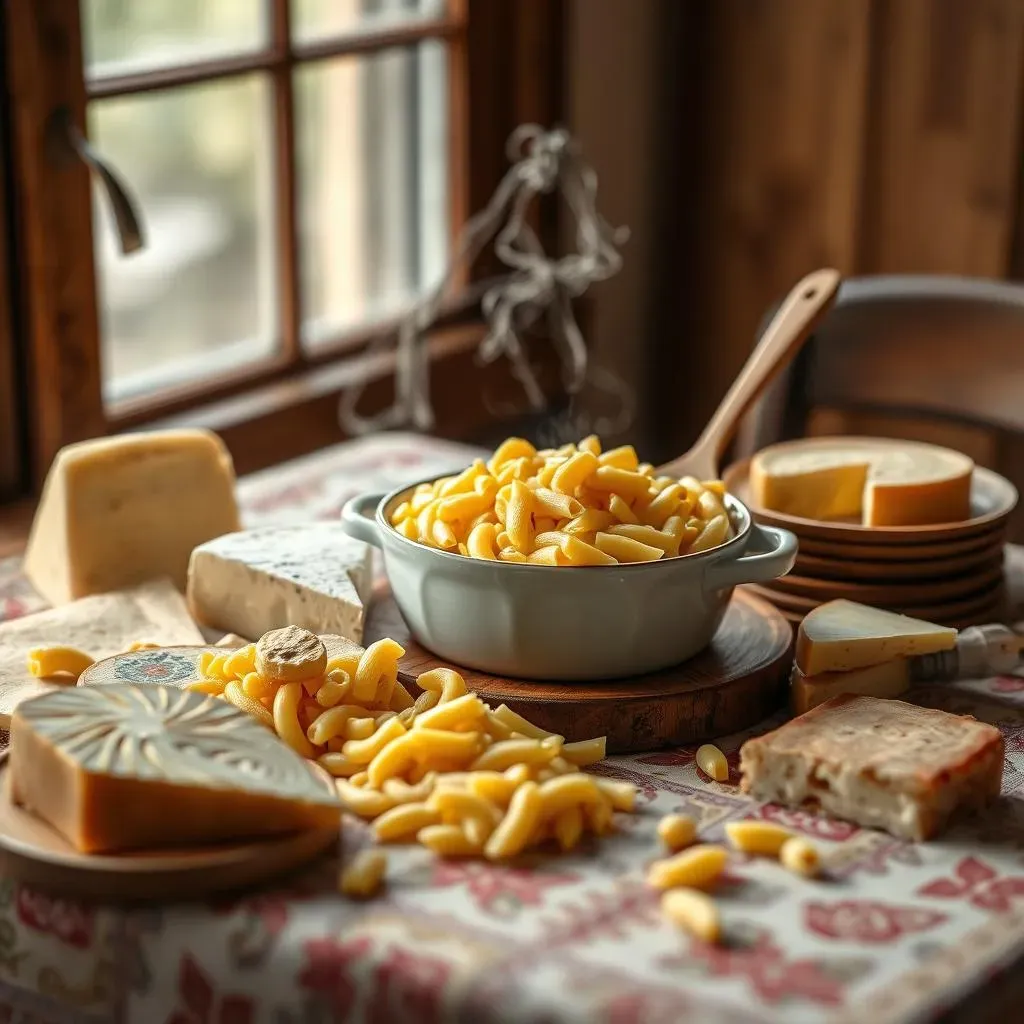
Essential Ingredients for the Best Easy Classic Mac and Cheese
Macaroni: Elbows Aren't Mandatory
let's talk noodles. Elbow macaroni is classic for a reason – those little curves are perfect for catching all that cheesy goodness. But don't feel limited! Shells, cavatappi, or even rotini work beautifully. The key is to choose a shape with plenty of nooks and crannies to maximize cheese coverage. I personally love using cavatappi because its ridges really grab onto the sauce.
When it comes to the type of pasta, opt for a high-quality semolina pasta. It holds its shape well and has a slightly nutty flavor that complements the cheese sauce. Avoid overcooking the pasta; aim for al dente, as it will continue to cook in the sauce.
Cheese: Cheddar is Just the Beginning
Cheddar is the undisputed king of mac and cheese, but don't be afraid to experiment with other varieties. A combination of sharp cheddar and Gruyère is a personal favorite, adding a nutty, complex flavor that's simply irresistible. Monterey Jack is another great option, providing a creamy, melty texture. And a touch of Parmesan adds a savory, umami note that elevates the dish to new heights.
Remember, freshly grated cheese is always best. Pre-shredded cheese often contains cellulose, which can prevent it from melting smoothly. Grating your own cheese ensures a creamy, luscious sauce every time.
The Creamy Base: Beyond Milk
While milk is a staple in most mac and cheese recipes, there are other ingredients you can use to create an even creamier, richer sauce. Half-and-half adds a touch of decadence, while heavy cream takes it to the next level. For a tangier flavor, try substituting some of the milk with sour cream or crème fraîche. These ingredients not only add creaminess but also help to balance the richness of the cheese.
A little bit of butter is also essential for creating a smooth, flavorful sauce. Use unsalted butter to control the saltiness of the dish. And don't forget a pinch of salt and pepper to season the sauce and bring out the flavors of the cheese.
Ingredient | Purpose |
|---|---|
Elbow Macaroni | Classic shape, catches cheese |
Sharp Cheddar | Sharp flavor, melts well |
Milk | Creates creamy sauce |
Butter | Adds flavor and richness |
StepbyStep Guide: Making Your Own Easy Classic Mac and Cheese
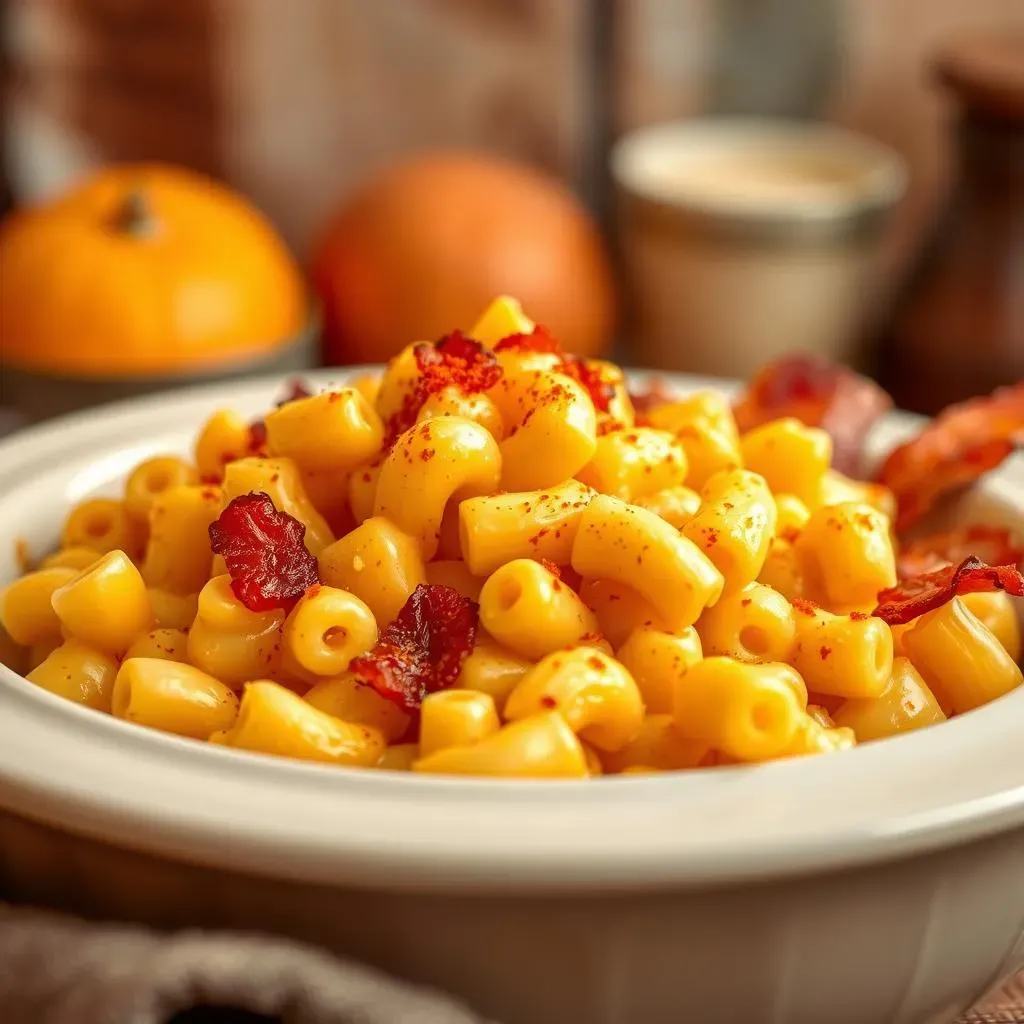
StepbyStep Guide: Making Your Own Easy Classic Mac and Cheese
Step 1: Cook the Macaroni
First things first, get your macaroni cooking! Fill a large pot with salted water and bring it to a boil. Add the macaroni and cook according to the package directions, but remember to cook it al dente. We don't want mushy noodles! Once it's cooked, drain it well and set it aside. A little tip: reserve about a cup of the pasta water before draining. This starchy water can be a lifesaver if your cheese sauce ends up too thick – just add a little bit at a time until you reach the perfect consistency.
Step 2: Make the Roux
Now, let's move on to the roux. In the same pot (wipe it clean first!), melt the butter over medium heat. Once it's melted, whisk in the flour until it forms a smooth paste. Cook this mixture for about a minute or two, stirring constantly, to cook out the raw flour taste. This step is crucial for a smooth, non-grainy sauce. Don't skip it!
Step 3: Create the Cheese Sauce
This is where the magic happens! Slowly whisk in the milk, a little at a time, until it's fully incorporated and smooth. Continue stirring constantly until the sauce thickens to the consistency of gravy. This might take a few minutes, so be patient. Once the sauce is thick, reduce the heat to low and add the cheese, a handful at a time, stirring until it's completely melted and smooth. Season with salt and pepper to taste. Remember, low and slow is the key to a creamy, dreamy cheese sauce.
Step 4: Combine and Serve
Finally, add the cooked macaroni to the cheese sauce and stir until it's evenly coated. And that's it! Your easy classic mac and cheese is ready to serve. Serve it immediately for the ultimate comfort food experience. You can also transfer it to a baking dish, top it with breadcrumbs, and bake it for a bubbly, golden-brown crust. The choice is yours!
Step | Description |
|---|---|
Cook Macaroni | Al dente, reserve pasta water |
Make Roux | Butter and flour, cook for 1-2 minutes |
Cheese Sauce | Low heat, melt cheese slowly |
Combine | Stir macaroni into cheese sauce |
Elevate Your Dish: Variations on the Easy Classic Mac and Cheese Recipe
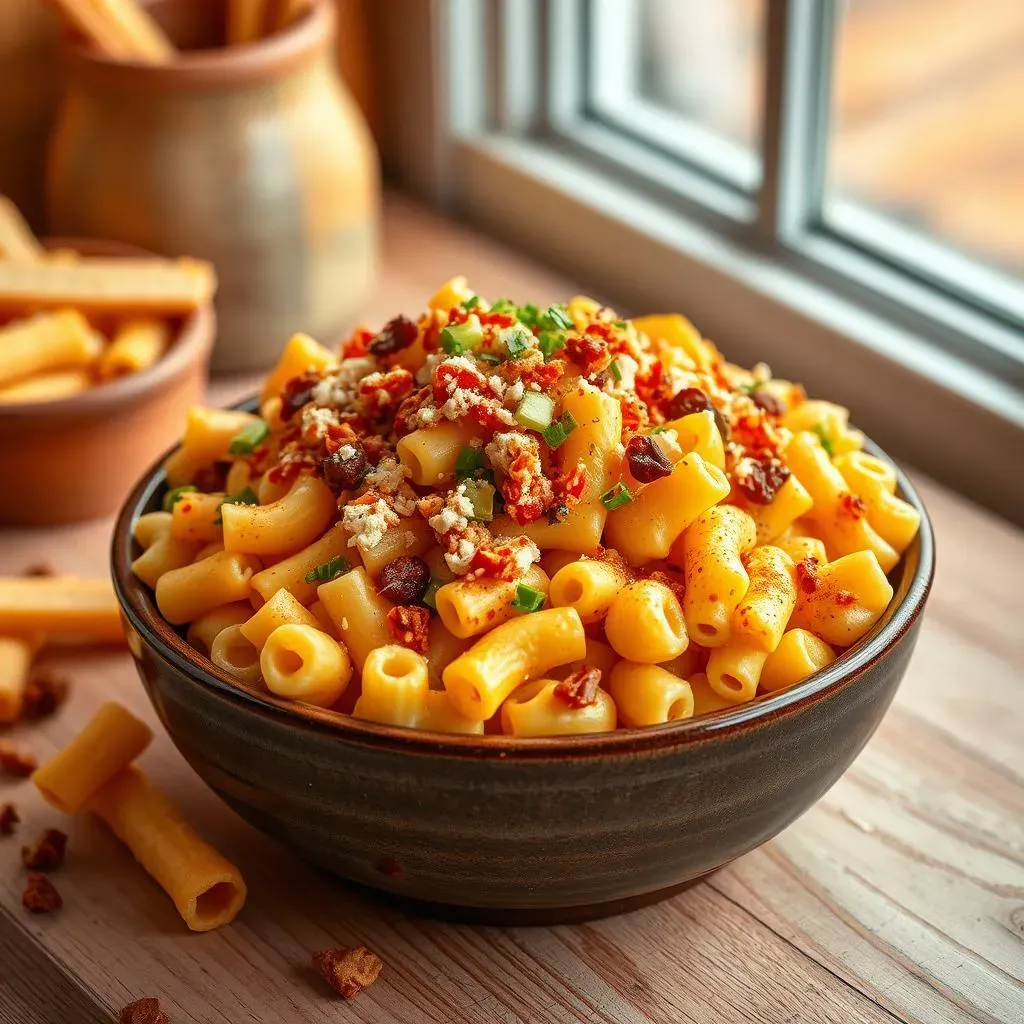
Elevate Your Dish: Variations on the Easy Classic Mac and Cheese Recipe
Spice It Up: Adding Heat and Flavor
Want to kick your mac and cheese up a notch? A dash of hot sauce, a pinch of red pepper flakes, or a swirl of sriracha can add a delightful kick. For a more subtle heat, try adding a roasted poblano pepper, diced and stirred into the cheese sauce. Smoked paprika is another great option, lending a smoky depth that complements the cheese beautifully. And if you're feeling adventurous, try a sprinkle of cayenne pepper for a fiery surprise.
Beyond heat, there are countless ways to infuse your mac and cheese with different flavors. Garlic powder, onion powder, or a pinch of nutmeg can add a subtle complexity. For a more herbaceous flavor, try adding fresh herbs like thyme, rosemary, or parsley. And a squeeze of lemon juice can brighten up the dish and balance the richness of the cheese.
Get Creative: Add-Ins and Toppings Galore
The possibilities are endless when it comes to add-ins and toppings for mac and cheese. Crispy bacon bits are a classic choice, adding a salty, smoky crunch. Roasted vegetables like broccoli, cauliflower, or Brussels sprouts add a healthy dose of nutrients and texture. Pulled pork, shredded chicken, or diced ham turn mac and cheese into a hearty, satisfying meal. And for a vegetarian option, try adding sautéed mushrooms, spinach, or artichoke hearts.
When it comes to toppings, breadcrumbs are a must. Toss them with melted butter and Parmesan cheese for a golden-brown, crispy crust. Crushed crackers, potato chips, or even fried onions can also add a delightful crunch. And don't forget a sprinkle of fresh herbs or a drizzle of truffle oil for a touch of elegance.
Variation | Description |
|---|---|
Spicy Mac | Add hot sauce, red pepper flakes |
Bacon Mac | Crispy bacon bits |
Veggie Mac | Roasted vegetables |
Truffle Mac | Drizzle of truffle oil |
Tips and Tricks for Perfecting Your Easy Classic Mac and Cheese
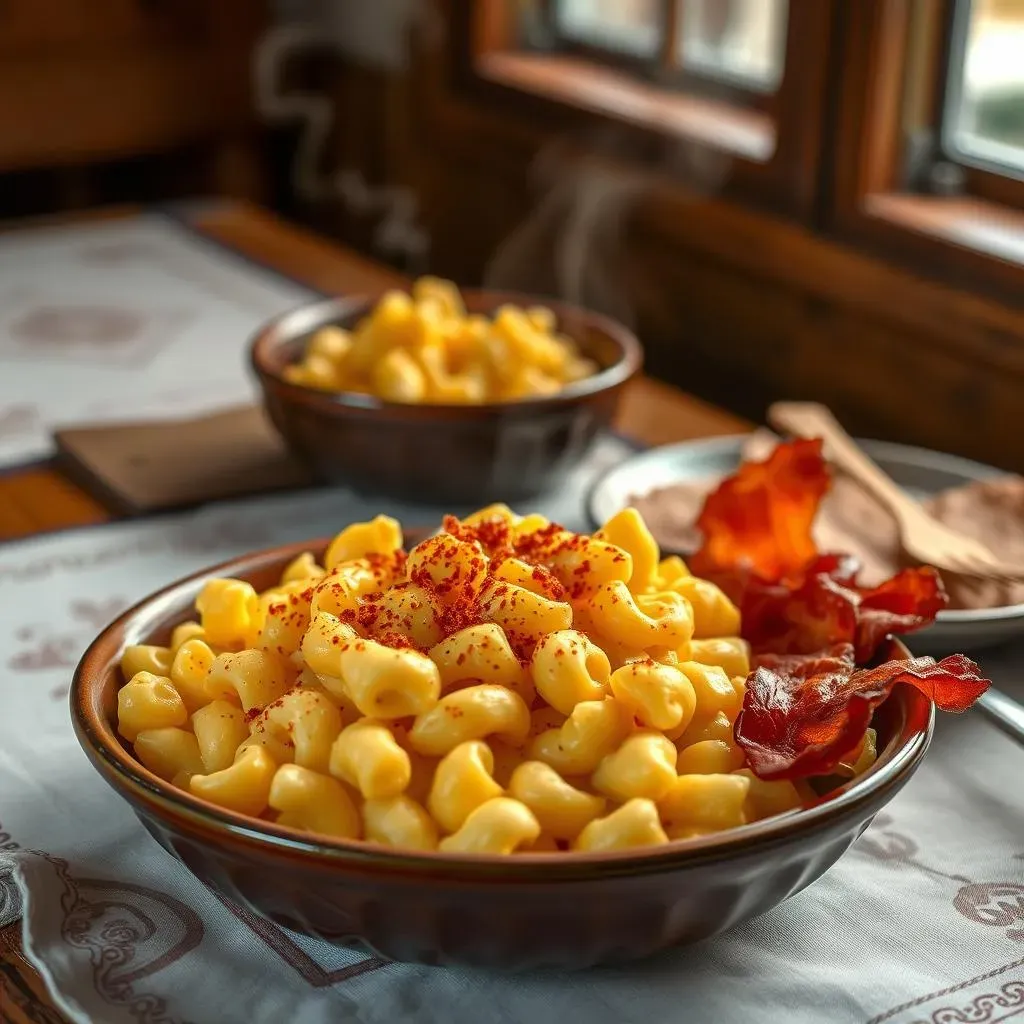
Tips and Tricks for Perfecting Your Easy Classic Mac and Cheese
Preventing a Grainy Sauce
Alright, let's tackle the number one fear when making mac and cheese: a grainy sauce. We've already talked about using freshly grated cheese, but here's another pro tip: add a little bit of cornstarch to your cheese. Toss the grated cheese with a tablespoon or two of cornstarch before adding it to the sauce. The cornstarch helps to stabilize the cheese and prevents it from clumping and becoming grainy. Also, make sure your milk isn't too cold when you add it to the roux. Cold milk can shock the roux and cause it to seize up. Warm it up slightly before adding it for a smoother sauce.
Another common mistake is overheating the cheese sauce. Remember, low and slow is the key! High heat can cause the cheese proteins to separate, resulting in a grainy, oily mess. If your sauce does start to look grainy, don't panic! Remove it from the heat and whisk in a tablespoon of lemon juice or white vinegar. The acidity can help to re-emulsify the sauce and smooth it out. And if all else fails, a tablespoon of cream cheese can work wonders. It adds creaminess and helps to bind the sauce together.
Make Ahead Magic and Reheating Tips
Mac and cheese is a great make-ahead dish, perfect for potlucks, parties, or busy weeknights. To make it ahead, prepare the mac and cheese according to the recipe, but don't bake it (if you're planning to bake it). Let it cool completely, then transfer it to a baking dish, cover it tightly with plastic wrap, and refrigerate it for up to 2 days. When you're ready to bake it, let it sit at room temperature for about 30 minutes before baking according to the recipe.
Reheating mac and cheese can be tricky, as it tends to dry out. To prevent this, add a splash of milk or cream before reheating. You can reheat it in the microwave, stirring every minute or so, or in the oven at 350°F (175°C) until heated through. If you're reheating a baked mac and cheese, cover it with foil to prevent the top from burning. And here's a secret weapon: a dollop of sour cream or crème fraîche stirred in just before serving will restore the creaminess and tanginess of the dish.
Tip | Description |
|---|---|
Cornstarch | Prevents grainy sauce |
Warm Milk | Smoother sauce |
Make Ahead | Refrigerate up to 2 days |
Reheating | Add milk or cream |
Conclusion: Your Journey to Mac and Cheese Mastery
So there you have it – your comprehensive guide to crafting the perfect easy classic mac and cheese recipe. From understanding the importance of high-quality cheese to mastering the art of the roux, you're now equipped to create a dish that's both comforting and impressive. Whether you stick to the classic recipe or experiment with exciting variations, remember that the key is to have fun and enjoy the process. Head over to cheesymacrecipes.com for more inspiration, and get ready to impress your friends and family with your newfound mac and cheese skills!